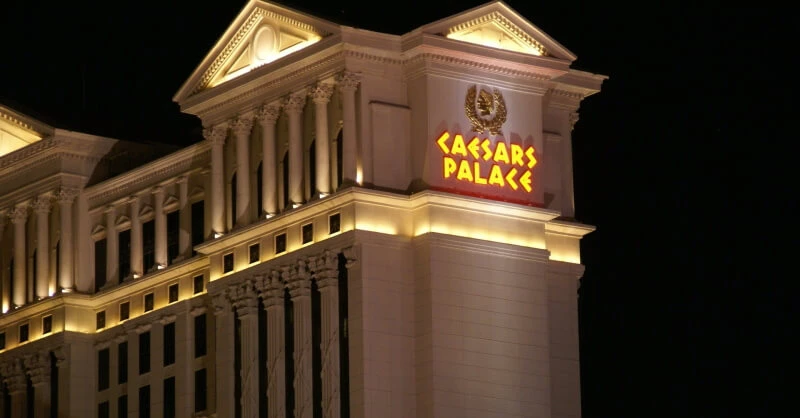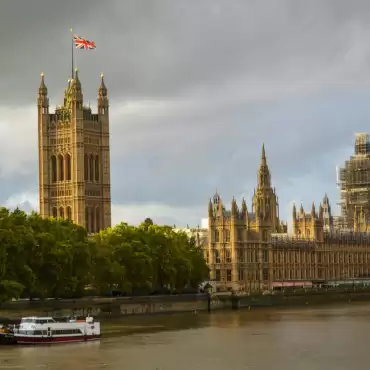Caesars Entertainment has posted the first quarter of positive adjusted EBITDA for its digital business since rebranding to Caesars Sportsbook in the summer of 2021.
The group launched its new-look sportsbook app in August 2021, following its acquisition of William Hill earlier in that year. Caesars acquired William Hill for £2.90bn (€3.37bn/$3.71bn) in April 2021 after a deal was agreed in September 2020.
In the months and years that followed, Caesars Sportsbook was rolled out across a total of 20 of states. However, despite this extended reach, EBITDA did not turn positive until the second quarter of this year.
EBITDA from Caesars Digital in Q2 reached $19.0m. In May this year, Caesars set a digital EBITDA target of $500.0m within the next two years.
Eric Hession, president of Caesars Sports and Online Gaming, welcomed the landmark. He highlighted the growth of both online sports betting and casino.
“Our performance this quarter continues to demonstrate the effectiveness of our targeted promotional investment and overall lower level of marketing within our existing customer base as well as customers located in the new states,” Hession said. “During the quarter, sports betting hold improved 180 basis points versus last year and icasino volume increased 27% year-over-year.”
Hession also noted four technology improvements that he said will drive further growth in the digital business. These include a new online casino product, which is live in multiple states, as well as the transition of its Caesars app in Nevada to the flagship Liberty product.
Other improvements were the roll-out of its net native iOS Sportsbook app, with this set to reach 100% adoption in August. In addition, Caesars is on track to introduce in-house player account management system later this year.
Mixed Las Vegas and regional results
While much of the focus was on the success of Caesars Digital, the operator reported growth in other areas. For the three months to 30 June, total group revenue hit $2.88bn, up 2.1% from $2.82bn in Q2 of 2022.
Regional operations generated the highest share of revenue at $1.46bn, up by 0.5% year-on-year. This was helped by the opening of new temporary facilities in Virginia and Nebraska, while the operator also reported that customer demand trends remained stable.
However, Las Vegas revenue slipped 1.2% to $1.13bn. Caesars put this down to an “exceptional” performance by this area of the business in Q2 last year, which was incidentally a record quarter for the business.
“Vegas remains very, very strong for us,” Caesars CEO Tom Reeg said. “It feels very good with really no discernible impact in terms of any recessionary concerns, or any concerns about the consumer.”
Changing fortunes of digital
Caesars Digital experienced the most growth, with revenue for this area of the business up 42.1% to $216.0m. In contrast, the segment posted a $116.0m net loss in Q2 last year. However, the latest figure was lower than $230.0m in Q1 of this year.
A further $72.0m came from managed and branded activities, while $2.0m was attributed to corporate and other business.
Breaking this down in terms of revenue source, casino accounted for $1.59m of Q2 revenue, up 2.2%. Food and beverage revenue climbed 2.4% to $432.0m, while hotel also increased 1.2% to $525.0m. An additional $335.0m came from other activities.
Net profit returns despite higher spending
Turning to costs, overall operating expenses were 2.3% higher at $2.27bn in Q2. Casino was again the main outgoing, although spending here was reduced by 1.0% to $817.0m.
An additional $583.0m in finance-related costs was also reported, leaving pre-tax profit at $26.0m, down 70.5%.
However, Caesars also noted $902.0m in income tax benefits. As such, net profit reached $928.0m, compared to a $121.0m loss in the previous year. After taking $8.0m from non-controlling interests, net profit was $920.0m, in contrast to a $123.0m loss in 2022.
As for adjusted EBITDA, this reached $1.01bn, an increase of 3.0%. Las Vegas accounted for $512.0m, regional operations $11.0m and managed and branded $19.0m.
First half growth for Caesars
Looking at the first half, revenue for the six months to 30 June was $5.71bn, an 11.8% rise from $5.11bn in 2022.
Regional revenue edged up by 1.3% to $2.85bn, while Las Vegas revenue climbed 9.9% to $2.26bn. Digital revenue rocketed 358.6% to $454.0m, while managed and branded revenue was 0.7% higher at $141.0m.
Casino revenue hit $3.17bn, food and beverage $862.0m, hotel $10.3bn and other activities $650.0m.
As for costs, operating expenses were 0.5% lower at $4.50bn. Finance-related spending hit $1.37bn, leaving a pre-tax loss of $159.0m, an improvement on the $470.0m loss posted in 2022.
Caesars accounted for a $951.0m tax benefit, pushing net profit to a positive of $952.0m, in contrast to an $803.0m loss last year. Taking away non-controlling interest revenue, total net profit was $784.0m, compared to an $803.0m loss in the previous year.
As for adjusted EBITDA, this was 54.2% higher at $1.97bn. Las Vegas’ share was $1.05bn, with regional $956.0m, digital $7.0m and managed and branded $38.0m.
“The second quarter of 2023 reflected continued strength in our business,” Reeg said. “Demand remains strong in both Las Vegas and our regional markets.”





